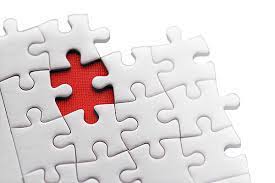
Do we know what causes PRP?
To the never-ending frustration of the PRP global community, we do not know what causes PRP. We suspect, however, that genetic factors, an abnormal immune response, or vitamin A deficiency may be involved. There is simply insufficient data on which to base a conclusion.
What we can say with metaphysical certitude is that PRP isn’t a punishment for misbehavior or forgetting to put the seat down on a toilet (loo in some parts of the world). There are thousands of perfectly wonderful people who have — or had — PRP. Moreover, there are many very bad people who don’t have it.
When asked, we can say: “The cause of PRP is not known. It’s a missing piece in our puzzle.” But perhaps there’s a more accurate response.
 I would love to ask every PRP patient — whether active or in remission — one question: What was going on in your life during the three months preceding onset? The response might include:
I would love to ask every PRP patient — whether active or in remission — one question: What was going on in your life during the three months preceding onset? The response might include:
- Had surgery
- Was pregnant
- My mother-in-law moved into our house
- Vaccination
- Relocated from my mother’s warm womb to a cold delivery room
None of these occurrences within the general population ALWAYS result in PRP. Collectively only one in 400,000 have the misfortune of being diagnosed with PRP. That said, I put my money on stress as one of triggers to a yet-to-be defined “true cause”. IMHO the onset of PRP is the result of an indeterminate and unpredictable alignment of factors. Each PRP journey is unique.
NEED MORE?
The following are PRP-related statements from a collection of reputable resources.
- The cause of PRP is unknown. PRP is usually sporadic but in some forms it may be partially inherited. It may occur in any race, and males and females are equally affected. Source: DermNet New Zealand.
- The exact cause of PRP is unknown. PRP most often occurs for no clear reason. While some cases of PRP are inherited, most are not. Inherited PRP tends to be more severe. Source: Healthline.com.
- In most cases, pityriasis rubra pilaris (PRP) occurs sporadically for unknown reasons. In a few families with the inherited form, familial PRP, the condition is caused by mutations in the CARD14 gene. This gene gives instructions for making a protein that turns on other proteins that regulate genes that control the body’s immune responses and inflammatory reactions. It also protects cells from certain signals that would otherwise cause them to self-destruct. The CARD14 protein is particularly abundant in the skin. Mutations in the gene can cause a person to have an abnormal inflammatory response. Researchers are trying to find out how these mutations cause the specific features of familial PRP. Source: Genetic and Rare Disease Information Center
- The specific underlying cause of PRP is unknown. Researchers indicate that the condition may be hereditary or acquired. In many patients, PRP appears to occur randomly for no known reason (sporadically). However, in some affected individuals, evidence suggests that the disorder may be inherited as an autosomal dominant trait. Human traits, including the classic genetic diseases, are the product of the interaction of two genes for that condition, one received from the father and one from the mother.
Dominant genetic disorders occur when only a single copy of an abnormal gene is necessary to cause a particular disease. The abnormal gene can be inherited from either parent or can be the result of a new mutation (gene change) in the affected individual. The risk of passing the abnormal gene from an affected parent to an offspring is 50% for each pregnancy. The risk is the same for males and females. In some individuals, the disorder is due to a spontaneous (de novo) genetic mutation that occurs in the egg or sperm cell. In such situations, the disorder is not inherited from the parents.
Some researchers suggest that PRP may result from abnormalities in vitamin A metabolism. (Metabolism refers to the chemical processes occurring in the body.) However, such research has not been definitive, necessitating further investigation. Source: National Organization of Rare Disorders.
- Post by Doop Mac, Rutland, Vermont (Facebook Support Group Membership required.
- CARD14 Research — Tel Aviv (PRP Survival Guide)
- CARD14 — Genetics Home Reference
revised November 16, 2022
